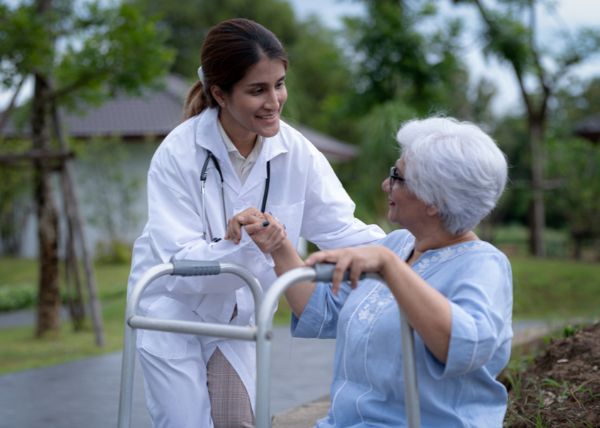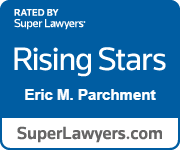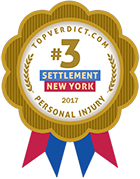Ready to Fight for You
How to Report Nursing Home Abuse in New York
Nursing home abuse is a serious issue that affects many vulnerable individuals in New York. If you suspect that a loved one is being mistreated in a nursing home, it is important to take action. The Law Offices of Mark E. Weinberger P.C. can provide guidance on how to report nursing home abuse and protect your loved ones. Read on to learn more about the steps you can take to ensure the safety and well-being of your family member in a nursing home.
What Constitutes Nursing Home Abuse in New York City?
Nursing home abuse in New York City encompasses a range of harmful actions or neglectful behavior towards residents in elder care facilities. Understanding what constitutes abuse is crucial for identifying and reporting it. The main types of nursing home abuse include:
- Physical Abuse: This involves the use of force that may result in bodily injury, pain, or impairment. Examples include hitting, slapping, pushing, or improperly using restraints.
- Emotional Abuse: Non-physical behaviors that cause emotional or psychological harm fall into this category. This includes verbal assaults, threats, humiliation, intimidation, and isolation.
- Sexual Abuse: Any non-consensual sexual contact with a nursing home resident is considered sexual abuse. This can range from unwanted touching to rape.
- Neglect: Failing to provide the necessary care and assistance to a resident constitutes neglect. This includes not providing adequate food, water, medical care, or hygiene assistance.
- Financial Exploitation: This occurs when someone illegally or improperly uses a resident’s financial resources. Examples include stealing money, forging signatures, or coercing a resident into signing financial documents.
- Abandonment: Deserting a resident in a public place or leaving them unattended in a way that endangers their well-being is considered abandonment.
Recognizing these forms of abuse is the first step in protecting vulnerable individuals in nursing homes. If you suspect abuse, it is critical to report it immediately to ensure the safety and well-being of the affected resident.
Signs Someone You Know is a Victim of Nursing Home Abuse

Identifying nursing home abuse can be challenging, especially since victims may be reluctant or unable to speak out due to fear, cognitive impairments, or coercion. However, there are several signs that may indicate someone you know is experiencing abuse. Being vigilant and recognizing these signs is crucial for intervening and ensuring their safety.
Physical Indicators:
- Unexplained Injuries: Look for bruises, cuts, burns, or fractures that cannot be logically explained.
- Frequent Hospitalizations: Multiple trips to the hospital or emergency room can be a red flag.
Signs of Restraint: Marks on wrists or ankles from being tied or restrained improperly.
Emotional and Behavioral Changes:
- Withdrawal: Sudden withdrawal from social interactions or activities they previously enjoyed.
- Mood Swings: Noticeable changes in mood, such as increased agitation, depression, or anxiety.
- Fearfulness: Exhibiting signs of fear or anxiety around certain staff members or in general.
Neglect Indicators:
- Poor Hygiene: Inadequate cleanliness, dirty clothing, or a strong smell of urine or feces.
- Weight Loss: Significant or sudden weight loss that isn’t attributable to a medical condition.
- Bedsores: Presence of pressure ulcers or bedsores, especially if they are untreated.
Financial Exploitation Signs:
- Unexplained Financial Transactions: Sudden changes in banking habits, missing funds, or unexplained withdrawals.
- Changes in Legal Documents: Sudden changes to wills, power of attorney, or other legal documents without the resident’s full understanding.
Environmental Signs:
- Unsafe Living Conditions: Dirty or hazardous living environments, including soiled bedding or poor maintenance of the facility.
- Lack of Medical Care: Untreated medical conditions, infections, or a lack of necessary medical aids like glasses, walkers, or medications.
Communication Issues:
- Reluctance to Speak: The resident may be hesitant to talk openly, especially when certain staff members are present.
- Confusion or Disorientation: While cognitive decline can be a natural part of aging, sudden or severe disorientation could indicate abuse or neglect.
If you notice any of these signs, it is crucial to take action immediately. Reporting your concerns can help protect the resident and ensure they receive the care and respect they deserve. Always trust your instincts and err on the side of caution when it comes to the well-being of nursing home residents.
How To Report Nursing Home Abuse in New York City
If you suspect that a loved one is a victim of nursing home abuse in New York City, taking immediate action is essential to ensure their safety and well-being. Here are the steps you can take to report nursing home abuse:
1. Document Your Concerns:
Keep detailed notes of any signs of abuse or neglect, including dates, times, and descriptions of incidents or conditions. Take photographs if possible and retain any physical evidence such as soiled clothing or bedding. Obtain copies of medical records that might indicate abuse or neglect, such as unexplained injuries or changes in health status.
2. Report to Authorities:
You can file a complaint with the New York State Department of Health, which oversees nursing home regulations and can conduct investigations. Complaints can be filed online or by calling their hotline at 1-888-201-4563. APS can investigate allegations of abuse, neglect, or exploitation of vulnerable adults. Contact them through the NYC Human Resources Administration at 1-844-697-3505. In cases of immediate danger, call 911 to ensure the resident’s safety. Local police can initiate a criminal investigation if necessary.
3. Contact a Legal Professional:
Engaging a skilled nursing home abuse attorney can significantly impact the outcome of your case. The Law Offices of Mark E. Weinberger P.C. specialize in personal injury law and can guide you through the process of reporting abuse, protecting your loved one’s rights, and seeking compensation for any harm suffered. We can also help navigate the complexities of legal proceedings and represent your interests in court if necessary.
4. File a Report with the Nursing Home:
Notify the nursing home administration of your concerns. They are required by law to investigate and address any allegations of abuse. Request written documentation of their investigation and any actions taken.
5. Follow Up:
Continue to monitor your loved one’s condition and the care they receive. Ensure that the abuse has stopped and that appropriate measures have been implemented to prevent future incidents. Keep in regular contact with authorities and your attorney to stay updated on the progress of any investigations or legal actions.
Taking these steps can help protect your loved one and hold the responsible parties accountable. If you need assistance or legal advice, contact The Law Offices of Mark E. Weinberger P.C. to ensure you receive the support and representation you need during this challenging time.
Steps to Take After You Report The Nursing Home Abuse
Reporting nursing home abuse is a critical step in protecting your loved one. However, ensuring their safety and achieving justice requires ongoing vigilance and action. Here are the steps to take after you have reported the abuse:
- Ensure Immediate Safety: If the abuse is severe or ongoing, consider relocating your loved one to another facility or temporary safe environment. This can prevent further harm while investigations are conducted. Have your loved one examined by a healthcare professional to document injuries and receive necessary treatment.
- Follow Up with Authorities: Maintain regular contact with the agencies or authorities handling the investigation. Request updates on the status of their inquiries and any findings. Be prepared to offer any further evidence or information that may arise. Keeping detailed records of all communications and developments can be crucial.
- Document Everything: Continue documenting all interactions, incidents, and changes in your loved one’s condition. This includes medical reports, photographs, witness statements, and any correspondence with the nursing home or authorities. Secure any new evidence that supports your claims, such as updated medical records or additional witness testimonies.
- Engage Legal Support: Contact a personal injury attorney with experience in nursing home abuse cases. The Law Offices of Mark E. Weinberger P.C. can provide expert guidance, helping you navigate the legal process and ensuring your loved one’s rights are protected. If necessary, your attorney can represent your loved one in legal proceedings, whether it involves negotiating settlements or pursuing litigation.
- Monitor Your Loved One’s Well-being: Visit your loved one frequently to observe their condition and the care they are receiving. Regular presence can deter potential abuse and provide emotional support. Maintain open communication with nursing home staff and administrators to ensure they are aware of your ongoing vigilance and concern for your loved one’s welfare.
- Advocate for Systemic Change: Share your experience to help raise awareness about nursing home abuse. This can encourage other families to be vigilant and proactive. Advocate for policy changes and reforms in elder care to improve protections for residents. Join or support organizations dedicated to elder care advocacy.
- Seek Counseling and Support: Abuse can be traumatic for both the victim and their family. Consider seeking counseling or support groups for emotional assistance and coping strategies. Rely on professionals who specialize in elder care and abuse to guide you through the recovery process.
By taking these steps, you can help ensure that your loved one receives the justice and protection they deserve, while also contributing to broader efforts to prevent nursing home abuse and improve the quality of care for all residents. If you need legal assistance, contact The Law Offices of Mark E. Weinberger P.C. to support you through this challenging time.
How a Nursing Home Abuse Lawyer Can Help
At The Law Offices of Mark E. Weinberger P.C., we understand the profound impact that nursing home abuse can have on victims and their families. Navigating the complexities of legal action in these cases requires specialized knowledge and experience. Here’s how our dedicated nursing home abuse lawyers can assist you:
Comprehensive Case Evaluation
We conduct a thorough review of your case, examining all aspects of the abuse or neglect incident. This includes analyzing medical records, incident reports, and any other pertinent evidence. Our team provides clear, straightforward legal advice, helping you understand your rights and the potential avenues for recourse.
Evidence Collection and Preservation
We meticulously collect and preserve crucial evidence to support your claim. This may include photographs, witness statements, and expert testimony. We ensure all documentation is complete and accurate, creating a strong foundation for your case.
Navigating Legal Processes
We handle the filing of all necessary legal documents, ensuring compliance with state laws and regulations. Our goal is to streamline the process and avoid any procedural delays. Whether negotiating with insurance companies or representing you in court, we advocate fiercely on your behalf to seek justice and fair compensation.
Negotiating Settlements
Our attorneys are skilled negotiators who work diligently to achieve the best possible settlement. We negotiate with insurance companies and nursing home representatives to secure compensation for medical expenses, pain and suffering, and other damages. We always prioritize your interests, ensuring any settlement offer reflects the true extent of the harm suffered.
Litigation Support
If a fair settlement cannot be reached, we are prepared to take your case to court. Our attorneys have extensive trial experience and will present a compelling case to the judge and jury. Throughout the litigation process, we provide continuous support and updates, keeping you informed and involved every step of the way.
Emotional and Practical Support
We understand the emotional toll that nursing home abuse cases can take. Our team offers compassionate support, guiding you through the legal process with sensitivity and respect. We can connect you with additional resources, such as counseling services and support groups, to help you and your loved one cope with the aftermath of abuse.
Advocating for Systemic Change
Beyond individual cases, we are committed to advocating for broader changes in nursing home policies and regulations. Our goal is to enhance protections for all residents and prevent future incidents of abuse.
At The Law Offices of Mark E. Weinberger P.C., our primary mission is to ensure that victims of nursing home abuse receive the justice they deserve. If you suspect that a loved one is being abused or neglected in a nursing home, contact us immediately. We are here to provide the expert legal support you need to protect your loved one and hold the responsible parties accountable.
End Nursing Home Abuse with The Law Offices of Mark E. Weinberger
With a dedicated team of experienced attorneys and legal professionals, The Law Offices of Mark E. Weinberger is committed to putting an end to nursing home abuse in New York. We understand the devastating impact that abuse can have on victims and their families, and we are here to fight for justice on behalf of those who have been harmed. If you or a loved one is experiencing nursing home abuse, contact our office to speak with a nursing home abuse lawyer today.
How Can We Help You?
Fields marked with an * are required
"*" indicates required fields




